The International Network Generations Roadmap (INGR) is a technology roadmap evaluating 5G and beyond technologies, development challenges, and deployment opportunities at 3-year, 5-year, and 10-year horizons. Each panel in this series pairs different INGR working groups together, to discuss how their technologies overlap and depend on each other, and how those dependencies may evolve or bring challenges. Hear from experts on topics including Millimeter Wave, Massive MIMO, Satellites, Edge Services, AI/ML, and more!
Wednesday 13 October
IP-1: INGR Panel: Millimeter Wave and Massive MIMO – Deployment Challenges and New Trends
Panel Time: 11:00am ET US
Description: Recently, we’ve seen the initial deployment results of 5G millimeter wave (mmWave) and Massive MIMO systems and the beginning of research activities to address the requirements of 6G and beyond. In this panel, we invite a group of researchers and practitioners to review the lessons learned from the early mmWave & Massive MIMO deployment results and explore future trends: What are the challenges and opportunities for mmWave & Massive MIMO researchers? Which fundamental research direction(s) may drive the next generation mmWave & Massive MIMO innovations?
Speakers:
Chris Ng, Director of Systems Engineering Products, Blue Danube Systems
Dr. Alberto Valdes Garcia, Principal Research Staff Member and Manager, IBM Research
Dr. Paolo Gargini, Fellow, IEEE/Intel
Dr. Naveen Yanduru, Vice President and General Manager, Renesas Electronics
Dr. Kumar Vijay Mishra, Senior Fellow, United States Army Research Laboratory
Dr. Yiming Huo, Research Associate, University of Victoria
Dr. Kasturi Vasudevan, Professor at Dept of EE, IIT Kanpur
IP-2: INGR Panel: Connecting the Unconnected and Satellite Networking Trends and Challenges
Panel Time: 2:00om ET US
Description: Internet access is critical to education, industry, and healthy living. Unconnected populations lack access to sell goods and services online, and students lack access to schooling. Working or studying from home is unrealistic for those lacking internet access, forcing a decision between learning or earning a living. Come hear how Satellites are critical in this process as well as how the latest trends and challenges are impacting the advancement of communications networking technologies.
Speakers:
Prof. Giovanni Giambene, University of Siena, Italy
Prof. Ashutosh Dutta, Johns Hopkins University, USA, and Prof. Sudhir Dixit, Basic Internet Foundation, USA
Sandeep Agrawal, Chair IEEE SA P2872
Prof. Mohamed-Slim Alouini, KAUST, Kingdom of Saudi Arabia
Prof. Abdelaali Chaoub, National Institute of Posts and Telecommunications (INPT), Morocco
Dr. Paresh Saxena, BITS-Pilani, Hyderabad Campus, India
IP-3: INGR Panel: Testbeds bridging the gap between optical and radio hardware and applications
Panel Time: 4:30pm ET US
Description: Optical communications continue to play an integral role in the future of communications technologies. Testbeds provide critical research opportunities for progress in this area. Come hear how the latest trends and challenges are impacting the advancement of communications networking technologies in these fields.
Speakers:
Dan Kilper, Trinity College Dublin
Ivan Seskar, Rutgers University
Thas Nirmalathas, University of Melbourne
Lena Wosinska, Chalmers University
Thursday 14 October
IP-4: INGR Panel: Deployment, Energy Efficiency, and Applications and Services Comprehensive Plans
Panel Time: 11:00am ET US
Description: By addressing multiple aspects of communication performance, like scalability, QoS and tiered response time, the architecture of 5G networks enables new applications, which could not be available with previous generation technologies. Deploying these capabilities generates new challenges and opportunities as systems evolve. Regulatory constraints and energy requirements are among the key issues to be solved, requiring new targets for efficiency and a more comprehensive approach to system development. The panel will review the main challenges and highlight the research and development required to achieve the promises that 5G technology is touting.
Speakers:
Francesco Carobolante (EE)
Brian Zahnstecher (EE)
David Witkowski (Deployment)
Tim Page (Deployment)
Narendra Mangra (Applications and Services)
Frederica Darema (Retired/Former Director of the Air Force Office of Scientific Research)
IP-5: INGR Panel: Combining Energy Efficiency and Systems Optimization for Network Sustainability
Panel Time: 2:00om ET US
Description: From individual subsystems to the entire network or grid levels, a lot of literature discusses best practices for optimization, but this is often limited by the specific context. We invite you to join us for a comprehensive and interactive discussion about optimization in several different use cases though the lens of a wide breadth of stakeholder perspectives, with a focus on supporting operator network energy efficiency and sustainability in these use cases. In the world of 5G & Beyond, the efforts of all these diverse stakeholders is likely driven to optimize respective performance targets, sometime in conflict with each other. The diverse and deep subject-matter-expertise of the panel will address optimization from a global perspective.
Speakers:
Francesco Carobolante (EE)
Brian Zahnstecher (EE)
Kishor Narang (SysOpt)
Dilip Krishnaswamy (SysOpt)
Meryem Simsek (SysOpt)
Friday 15 October
IP-6: INGR Panel: Standardization update on INGR of FNI
Panel Time: 11:00am ET US
Description: Standards are an integral part of technology’s progress. As the roadmap looks over the next decade, where will standards development be most critical? What areas are seeing the standards activity? Come hear how standards are impacting the advancement of communications networking technologies as outlined by the Future Networks Initiative roadmap.
Moderator: Mehmet Ulema, Manhattan College, NewYork, USA
– Introduction of the SBB chapter of the INGR 2nd Edition
Panelists:
Abdelaali Chaoub, Institut National des Postes et Télécommunications (INPT), Morocco
– Connecting the Unconnected: Standardization Opportunities for an Inclusive Connectivity
Ranganai Chaparadza, Consultant for Vodafone, Germany
– Challenges and Opportunities for standardization in Systems Optimization area
Muslim Elkotob, Vodafone, Germany
– Opportunities for standardization in Security space
Alexander Gelman, NETovations, USA
– Challenges in standarization of emerging technologies; an approach to Massive MIMO standardization
Reinhard Schrage, SchrageConsult, Germany
– Ethically Aligned Design; Opportunities for Satellite standardization
Mehmet Ulema, Manhattan Collgee, USA
– Opportunities for standardization in Optics space
Speaker Bios
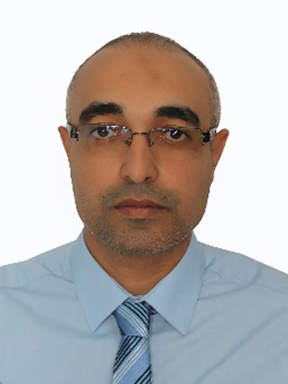 Abdelaali Chaoub
Abdelaali Chaoub
Abdelaali Chaoub is an Associate Professor in Telecommunications, appointed at the Institut National des Postes et Télécommunications (INPT) of Morocco in 2015. He obtained an engineering diploma of telecommunication from INPT in 2007 with the highest honors and received his Ph.D. degree from Mohammed V-Agdal University, in 2013. His research interests are related to remote/rural connectivity solutions for B5G/6G networks, design and optimization of IoT-enabled smart environments (e.g., LoRa and power line communications), dynamic spectrum access and cognitive radio networks, adaptive multimedia streaming in wireless networks and mitigation of DoS attacks in cellular networks. He is a paper reviewer for several leading international journals and conferences. Prof A. Chaoub has accumulated intersectoral skills through work experience both in academia and industry as a Senior VoIP solutions Consultant/Architect at Alcatel-Lucent (2007 — 2015), where he has been involved in many projects for implementing IP Telephony in large structures.
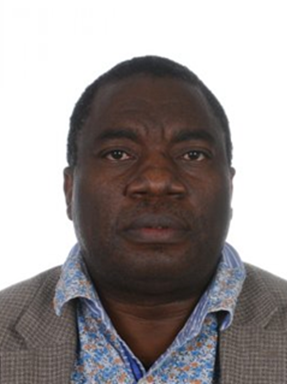 Ranganai Chaparadza
Ranganai Chaparadza
Ranganai Chaparadza: Dr.-Ing./PhD, is a Senior Capgemini Engineering Technical & Technology Consultant for Vodafone (and other Telecommunications Network Operators as well) and Solutions Design Architect. He actively supports Network Operators in various aspects: Vendor Management and Solutions Selections on SDN/NFV and E2E Service Assurance Solutions for Telco Networks and Data Center (DC) Network Services; Business Development with Emerging ICT Technologies and Future Networks; Standardization Expert (ETSI, BBF, ITU-T, NGMN, TMF, 3GPP, IEEE, IETF, ONF, MEF); R&D; RFIs/RFQs/RFPs Processes and Solution Supplier Selection; SDN/NFV TCO (Total Cost of Ownership); Building Optimal Commercial Models for Transport SDN and NFV; Procurement Transformation in the Era of SDN/NFV; Products Innovation with SDN, NFV and AMC (Autonomic Management & Control) for Network Automation using ETSI GANA oriented Standards; ETSI 5G PoC on E2E Closed-Loop (Autonomic) Service Assurance and E2E Autonomic Security Assurance for 5G Network Slices. He is also contributor to IEEE Future Networks Standardization Building Blocks Roadmap WG, Systems Optimization WG, and Testbeds WG.
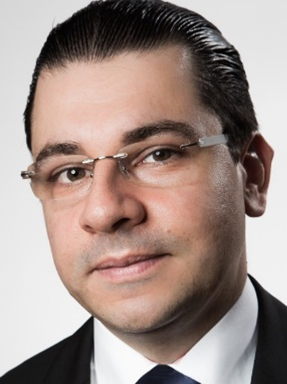 Muslim Elkotob
Muslim Elkotob
Muslim Elkotob is a Principal Solutions Architect at Vodafone with a lead role and end-to-end responsibility in the Enterprise Business Line. He works on driving innovation and standardizing architectures in the areas of SDN/NFV, Autonomics, Slicing and Security in 5G and IoT. He is an IPv6-Forum Fellow and delegate with lead roles in various SDOs including ETSI, TMForum, ITU-T and IEEE. Having a career background with vendors, service providers and R&D, he has spent the last seven years strengthening Vodafone’s role in the enterprise Value Chain as a global player with a powerful infrastructure and autonomic IT services on top.
 Alex Gelman
Alex Gelman
Alexander D. Gelman received M.E. and Ph.D. (EE) from City University of New York. Presently he is CTO of NETovations Consulting Group. During 1998-2007 Alex worked as Chief Scientist at Panasonic Princeton Research Laboratory; during 1984-1998 at Bellcore, lastly as Director-Internet Access Architectures Research. Alex has numerous publications and several patents. He pioneered Multimedia Bridging, Video on Demand over Networks and XDSL-based Internet Access. He was among first recipients of Bellcore President’s Award. Alex co-founded eight IEEE conferences and two publications; initiated ComSoc Standards Activities; initiated ComSoc Technical Committee and standardization in Power Line Communications; chaired the Technical Committee on Multimedia Communications; served four terms as ComSoc Vice President. Alex served on IEEE-SA BoG and several terms on Standards Board, e.g. representing TAB; chaired TAB Ad Hoc Committee on Standards. Alex is a recipient of ComSoc Donald McLellan Meritorious Service Award, IEEE-SA Corporate Standards Sponsor Award and IEEE-SA Standards Medallion.
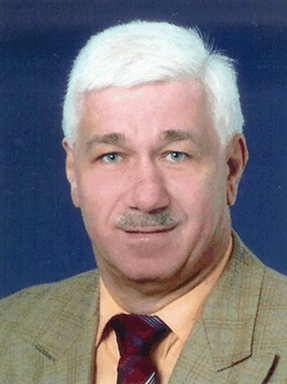 Reinhard Schrage
Reinhard Schrage
Reinhard Schrage (reinhard@schrageconsult.com) is a senior consultant at SchrageConsult, Germany. His work expertise spans from calculation of nuclear fallout areas through design of bespoke financial application software and planning responsibility for a global financial services network to stochastic performance analysis of smartphone clusters. He is a contributing member to the IEEE Next Generation Service Overlay Network Working Group 1903, P1910.1™ Standard for Meshed Tree Bridging with Loop Free Forwarding, the DySPAN-SC 1900.5 Working Group as well as IETF RFC 6349 ‘Framework for TCP Throughput Testing’
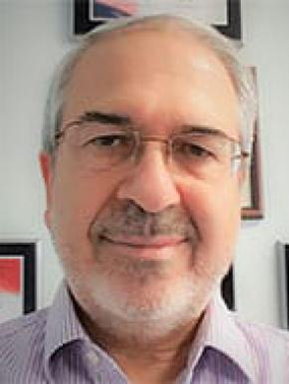 Mehmet Ulema
Mehmet Ulema
Dr. Mehmet Ulema is a professor of Computer Information Systems at Manhattan College, New York. Previously, he held management and technical positions in AT&T Bell Laboratories, Bellcore, Daewoo Telecom, and Hazeltine Corporation. He has been on the editorial board of a number of journals, including the IEEE Journal of Internet of Things, IEEE Transactions on Network and Service Management, and the Springer Journal of Network and Services Management. Dr. Ulema is the author of a book entitled “Fundamentals of Public Safety Networks and Critical Communications” published by Wiley in 2019. Mehmet was actively involved in standardization in ITU, TIA, ATIS, and IEEE. Mehmet has been a prominent volunteer at IEEE Communications Society (ComSoc) and the IEEE Standard Association (SA). Currently, he is the chair of the IEEE COM/NetSoft Standards Committee and Co-chair of the IEEE Future Network Initiatives’ Standards Working Group. Dr. Ulema has received a number of awards including IEEE ComSoc Harold Sobol Award, IEEE SA Standards Medallion award, and IEEE ComSoc Salah Aidarous Memorial Award. Dr. Ulema received MS & Ph.D. in Computer Science at Polytechnic University (now the New York University Tandon School of Engineering. He also received BS & MS degrees at Istanbul Technical University.
IP-7: INGR Panel: Edge Services, AI/ML, and Security Networking Trends and Challenges
Panel Time: 2:00pm ET US
Description: The service delivery demand is moving from Cloud to Edge for 5G & beyond at exascale data rates as projected by different analysts like IHS, Gartner etc.. The demand for Ultra reliable low latency emerges from Industrial IoT requirements. Asking for confidentiality & security for any activity at Edge and Cloud is making Service Providers take extra measures to avoid liability & litigations to meet SLAs for their offers. The key enabler identified for intelligent agents to observe and act upon alerts, events are AI & ML based. This becomes more relevant as Application Service Providers seek automation from PaaS & IaaS as they leverage resource pools and clusters that leverage special purpose accelerators as well as de facto kubernetes cluster and orchestration standards. The expert panel from Industry and IEEE INGR future networks will present and debate some of the fine grained aspects of how to address the trends to meet the challenges faced by Industry.
Speakers:
Edge Co-Chair – TK Lala
Security Co-Chair – Eman Hammad
AI/ML Co-Chair – Deepak Kataria
External Panelist 1 – Sanjay Pawar
External Panelist 2 – Michael Liljenstam, Principal Researcher, Security Research, Ericsson
External Panelist 3 – Joe Krystofik, Product Manager at Fujitsu Network Communications Inc
External Panelist 4 – Zoran Kostic, Professor, Columbia University
Speaker Bios
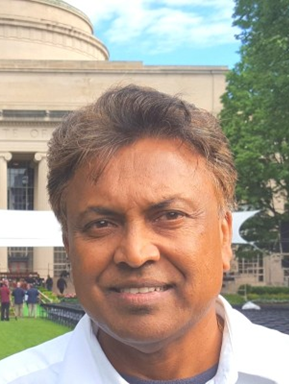 T.K. Lala
T.K. Lala
T.K. Lala, an ex- Bell Labs(original) researcher, currently is on a mission to architect modern edge and hybrid computing solutions (as the founder of www.linkedin.com/company/ZcureZ) fueled by 5g +, SDN, NFV, AI/ML technologies. TK (listed in Who’s who in America) also serves as an Executive advisor to a cyber security startup board and a silicon valley high tech incubator. TK ran and led a few silicon valley startups and also served as CTO/VP-Eng and held senior engineering management responsibilities at Fortune 500 organizations including AT&T Bell labs, NEC, Hitachi, Fujitsu, 3Com. Motorola, Mitre Labs, Rockwell and BAE. T.K., a Senior member of IEEE has served as a technical editor of IEEE Communication magazine for about a decade and has been well published and was recently also the prime contributor of IEEE p1915 Security in virtualized context. He has been serving as a Co-chair of IEEE INGR (next gen) Edge networking roadmap WG and served as the chair, moderator and speaker for the Edge, AI/ML and Security panel of IEEE 5GWF 2021. He (a certified PMP) has been also certified as an internationally recognized Expert System engineering professional ESEP (INCOSE). Over the years, he has been one of the key contributors and served as a member-driver of many standardization organizations including IEEE 802, 802.3, 802.11, ANSI T1 subcommittees, ATM Form, ADSL Forum and IETF. He currently is also involved in the LF CNCF security WG and has served as the vice chair of IEEE CE silicon valley chapter. He also served as an executive in MIT affiliated VLAB venture. In addition to a BSEE, TK holds an MSEE from Queen’s University and pursued Ph.D in EE and holder of few patents in cybersecurity and networking technology.
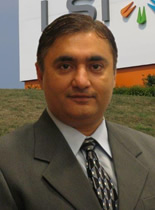 Deepak Kataria
Deepak Kataria
Deepak Kataria has over 25 years’ experience in data networking, cloud computing and telecom domains with the unique distinction of having worked in technical leadership and service delivery roles with telco operators (AT&T Bell Labs), system OEM vendors (Lucent Technologies, Fujitsu), silicon & software providers (Agere Systems, LSI), and system integrators (HCL America). He co-founded IPJunction Inc in 2009 consulting telco clients on new solution opportunities, target markets, key differentiators, product management consulting and creating ecosystem partnerships for the successful execution of identified opportunities.
Currently, he serves as the Principal Solution Consultant at Ericsson and leads service delivery of complex, multi-domain solutions covering cloud native, orchestration, networking and RAN technologies for telco edge/core computing and emerging enterprise services use cases for AT&T and Microsoft projects.
He holds 10 US patents and has several others in pending status and has published extensively in industry and IEEE publications. He serves as the Chair of IEEE Princeton Central Jersey Section (Region 1), has been the General Chair of IEEE Sarnoff Symposium since 2015 and leads the IEEE FNI working Group on AI/ML as a Co-Chair. He holds a B.S. in Electronics and Communications Engineering, and pursued M.S. and Ph.D. degrees in Electrical Engineering from Rutgers University, NJ. He has completed Harvard’s Emerging Leader’s professional program on virtual leadership covering strategy, customer focus, corporate governance, and innovation.
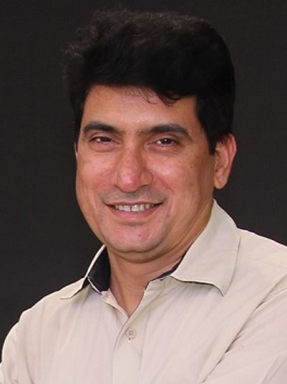 Sanjay S Pawar, Ph.D
Sanjay S Pawar, Ph.D
Dr. Sanjay S Pawar, done his Masters M.Tech (Communication) and Ph.D (Networking) from Department of EE, Indian Institute of Technology, Bombay (IITB), He has total 29 years of experiance teaching/research/ and Consultancy. Presently he is heading Usha Mittal Institute of Technology since 2010. The area of Interest is Fifth Generation Wireless Networks, Software Define Networks, Small Cell, Fiber Optics Networks, Machine and Deep Learning in Communications. He has total around 50 papers in International Journals and Conference to his credits. Sanjay mentored several research proposal in the area of Machine Learning from Department of Science and Technology, Govt. of India. One student has completed the Ph.D in the area IPV6 Low Power Personel Area Network (6LoWPAN), 3 students have submitted synopsis for Ph.D under his guidance sponsored by several organizations.
Professionally, Dr Sanjay S Pawar is a Senior IEEE member and IEEE Communication Society member since last 15 years, and also held various positions in sections and International level, Dr Sanjay S Pawar, is on the advisory board of several firms and organizations. He has also worked as an expert for Maharastra Cyber Cell, Reliance Jio and other corporates sectors.
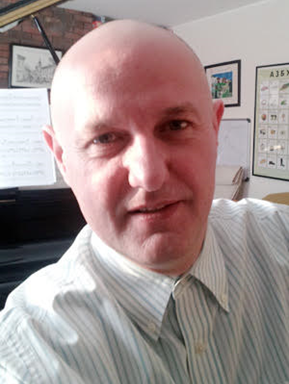 Zoran Kostic
Zoran Kostic
Zoran Kostic completed his Ph.D. in Electrical Engineering at the University of Rochester and his Dipl. Ing. degree at the University of Novi Sad. He spent most of his career in industry where he worked in research, product development and in leadership positions.
Zoran’s expertise spans mobile data systems, wireless communications, signal processing, multimedia, system-on-chip development and applications of parallel computing. His present research addresses Internet of Things systems and physical data analytics, smart cities, and applications of deep learning in autonomous vehicle navigation, medicine and health. His work comprises a mix of research, system architecture and software/hardware development, which resulted in a notable publication record, three dozen patents, and critical contributions to successful products. He has experience in Intellectual Property consulting.
Dr. Kostic is an active member of the IEEE, and he has served as an associate editor of the IEEE Transactions on Communications and IEEE Communications Letters.
